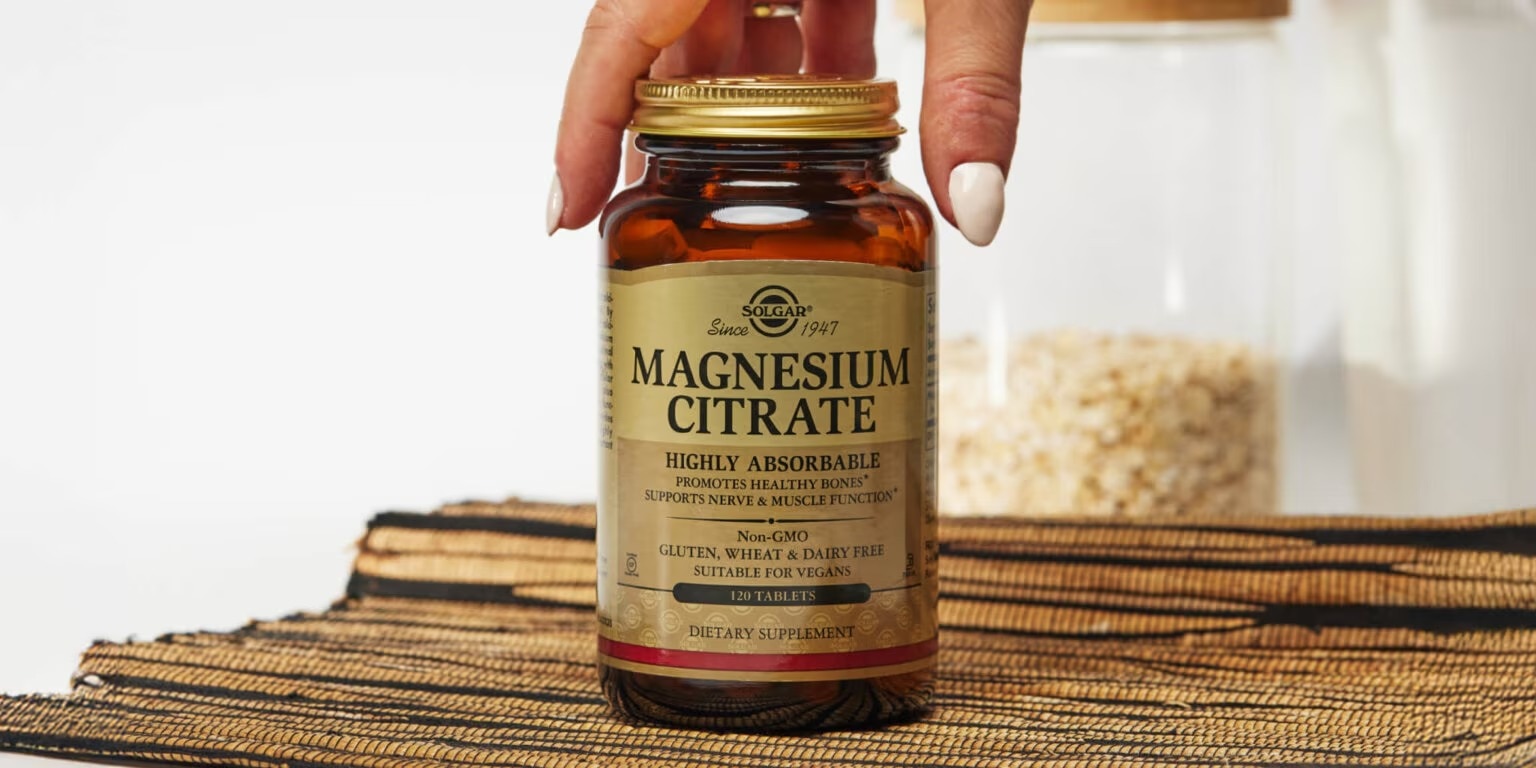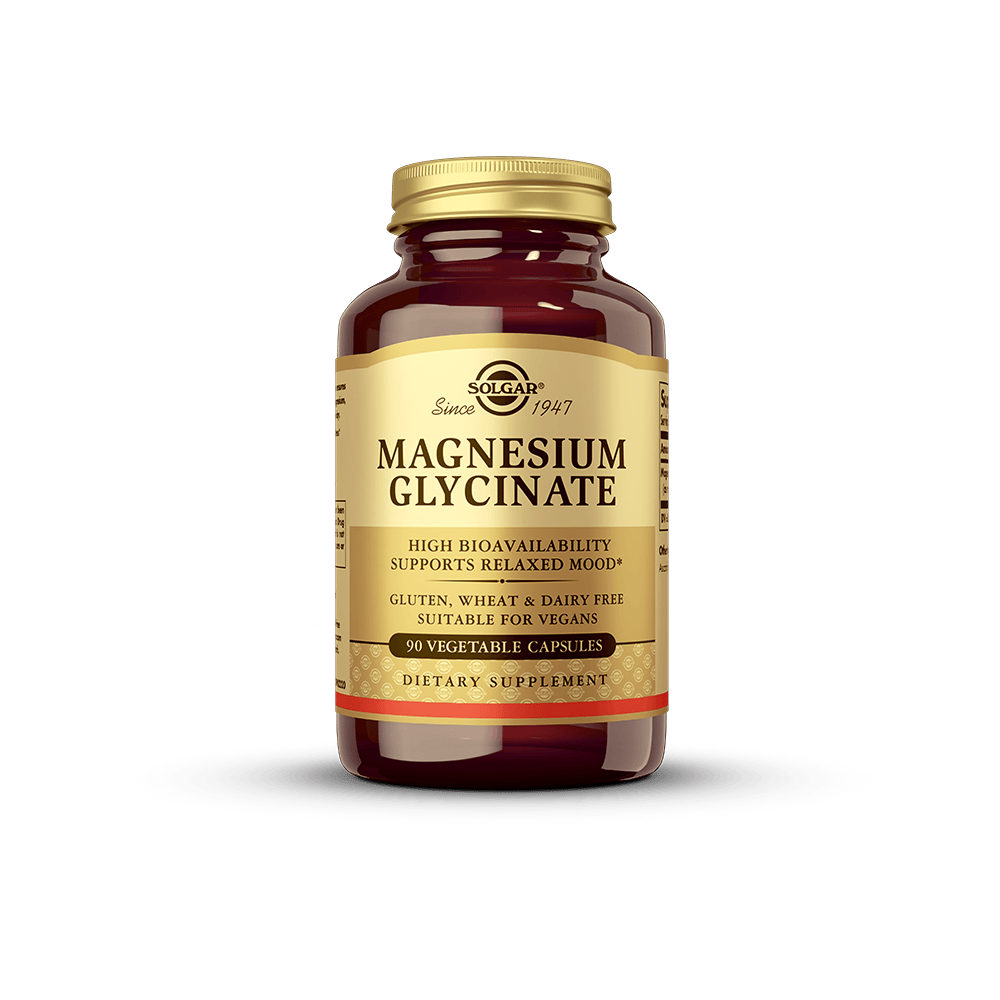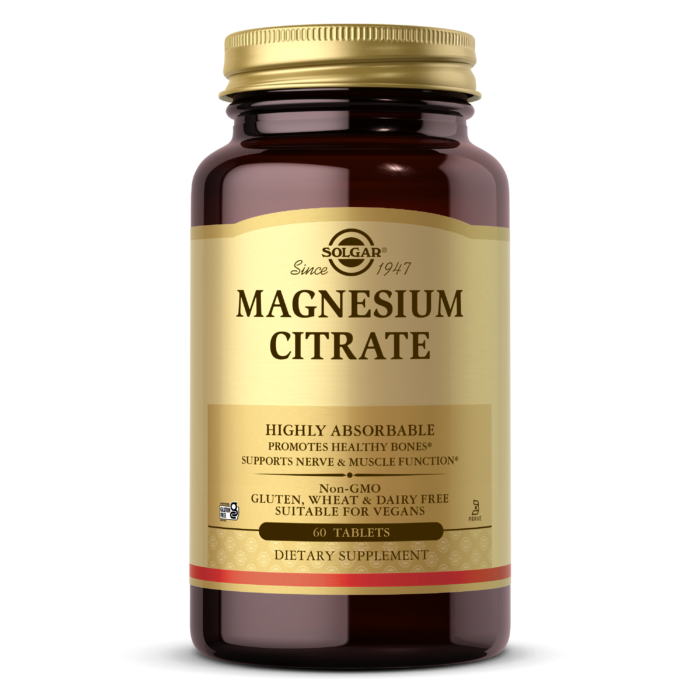How to Choose a Magnesium Supplement: A Practical Guide

Key Takeaways:
- Magnesium is an important mineral, yet many people may not get enough of it from their diet alone.
- Choose the magnesium for your needs: Magnesium glycinate may be better for promoting relaxation and reducing fatigue, while magnesium citrate supports cellular energy and proper muscle function.*
Nearly half of the US population does not get the required daily amount of magnesium.1
Magnesium is a crucial mineral that plays a role in over 300 biochemical processes in the body, including muscle function, nerve signaling, and energy production.2 Because your body can’t make magnesium on its own, you must get it from your diet or supplements.
Choosing the magnesium supplement that’s right for you can feel overwhelming, but we’ll give you the information you need to make an educated, confident choice.
When to consider a magnesium supplement
Despite being such an important nutrient, many people aren’t getting enough magnesium. Some things that may affect your magnesium needs are:
- Age: Most people need more magnesium as they age.3 Magnesium may help manage age-related decline in physical performance, and research has also shown that high magnesium intake may support cognition in older adults.4 5
- Activity level: If you have a more active lifestyle, you may require more magnesium. Intense exercise often causes you to sweat or urinate more, which can increase your magnesium needs by 10-20%.6 Research also shows that athletes who play sports requiring weight control (ie. wrestling, gymnastics) are especially vulnerable to having low magnesium levels.7
- Stress-levels: Stress and magnesium are part of a vicious cycle. Experiencing occasional stress can make you lose more magnesium. In turn, not getting enough magnesium can make the body more susceptible to occasional stress.8
- Pregnancy & breastfeeding: People who are pregnant or breastfeeding need higher amounts of magnesium. Not getting enough magnesium during pregnancy can pose health risks to both the mother and newborn.9
- Medications: Certain medications — such as diuretics — may interfere with magnesium absorption. Be sure to speak with your doctor if you are unsure how your medications may affect your magnesium needs.10
Foods that contain magnesium include whole grains, nuts, dark chocolate, and dark green leafy vegetables. You can also find magnesium-fortified foods, including certain cereals.11 However, you may still struggle to get enough magnesium from your diet alone. In this case, a magnesium supplement can be a great choice.
Types of magnesium supplements: magnesium glycinate vs. magnesium citrate
Two of the most common forms of magnesium supplements are magnesium glycinate and magnesium citrate. But what is the difference between these, and which one should you choose? Let’s take a closer look.
1. Magnesium Glycinate
Magnesium glycinate is a compound made from magnesium and the amino acid glycine.
Glycine improves the stability and absorption of magnesium. This binding is known as chelation. Chelation protects magnesium (and other minerals), so it doesn’t interact with other substances during digestion that could prevent absorption. Magnesium glycinate absorbs well and is less likely to cause stomach upset, even at higher doses. What’s the difference between magnesium glycinate and magnesium bisglycinate?
Magnesium glycinate and magnesium bisglycinate are synonyms. Magnesium bisglycinate is the more accurate term as magnesium is bound to two (bis) glycine molecules, but the term magnesium glycinate is more commonly used.
Key benefits of magnesium glycinate
- Absorption and bioavailability: Magnesium glycinate is highly bioavailable, meaning the body can absorb it efficiently. This is particularly helpful for people who are looking for a supplement that’s gentle on the stomach.12
- Calming Properties: The glycine component may offer added relaxation benefits, like helping to support mental well-being and helping to reduce tiredness and fatigue.*
Who should consider magnesium glycinate?
- People who have trouble unwinding after a long day
- People looking to support relaxation*
- People looking to reduce tiredness and fatigue*

Magnesium glycinate supplement
- Highly bioavailable form of magnesium
- Supports relaxation*
- Helps support mental wellbeing*
- Helps reduce occasional tiredness & fatigue from everyday life*
- Suitable for vegans
2. Magnesium Citrate
Magnesium citrate is made from magnesium and citric acid, an organic compound found in citrus fruits. Organic acid chelate forms of magnesium, like magnesium citrate, are more bioavailable and absorb more easily into the bloodstream than inorganic forms — such as magnesium oxide.13 14
Magnesium – particularly the magnesium citrate form — plays an important role in cellular energy production and muscle health.*
Key benefits of magnesium citrate
- Absorption and bioavailability: Magnesium citrate is highly bioavailable, meaning the body can absorb it efficiently.
- Supports cellular energy and healthy muscle function*: Magnesium is important for supporting energy levels and promoting healthy muscle function, allowing you to maintain an active and vibrant lifestyle every day.*
Who should consider magnesium citrate?
- Active adults or athletes
- People looking to support cellular energy*
- People looking to support muscle health*
Magnesium citrate supplements

Solgar® Magnesium Citrate Tablets
Helps:
- Alleviate occasional anxiety & stress*
- Maintain proper nerve and muscle function*
- Support bone health*
- Support heart health*
- Maintain cellular energy levels*
Non-GMO, vegan, kosher, gluten-free, & dairy-free.

Solgar® Magnesium Citrate Powder
- For cellular energy and vitality support*
- Supports healthy muscle function*
- Convenient and easy-to-take powder format
- Highly bioavailable form
- Suitable for vegans
Other supplements with magnesium
Solgar® Calcium Magnesium with D3
This highly absorbable supplement offers calcium, magnesium, and vitamin D3. Each serving helps support healthy bones and nerve and muscle function.*

Solgar® Liquid Calcium Magnesium Citrate with Vitamin D3
This supplement offers three essential nutrients in just one easy-to-take spoonful. Each serving helps:
- Maintain a healthy immune system and good general health*
- Support strong bones and teeth*
- Alleviate occasional anxiety and stress*
- Maintain proper nerve and muscle function*
How to choose the right magnesium supplement
- Assess your needs: What are you looking to support with magnesium supplementation? Support for Relaxation? Support for healthy muscles? Knowing your goals can help you choose the right one for you.*
- Consider bioavailability: Not all magnesium supplements are created equal. Be sure to look for highly bioavailable forms of magnesium, like magnesium glycinate or magnesium citrate.
- Consult your healthcare provider: Still unsure? Chat with your healthcare provider to get a personalized recommendation on what kind of magnesium supplement would benefit your health most.
Get the latest updates and exclusive deals when you sign up for our newsletter!
Summing it up
Magnesium is an important mineral needed for many bodily functions,* and taking a magnesium supplement can be the easiest way to get it. Understanding the differences between magnesium glycinate and magnesium citrate can empower you to make an informed choice. And always remember that supplements should complement a healthy lifestyle and diet, not replace them.
*These statements have not been evaluated by the Food and Drug Administration. These products are not intended to diagnose, treat, cure or prevent any disease.
The information provided on this site is intended for your general knowledge only and is not a substitute for professional medical advice or treatment for specific medical conditions. Always seek the advice of your physician or other qualified healthcare provider with any questions you may have regarding a medical condition. The information on this website is not intended to diagnose, treat, cure or prevent any disease. Never disregard medical advice or delay in seeking it because of something you have read on the Solgar® site.




